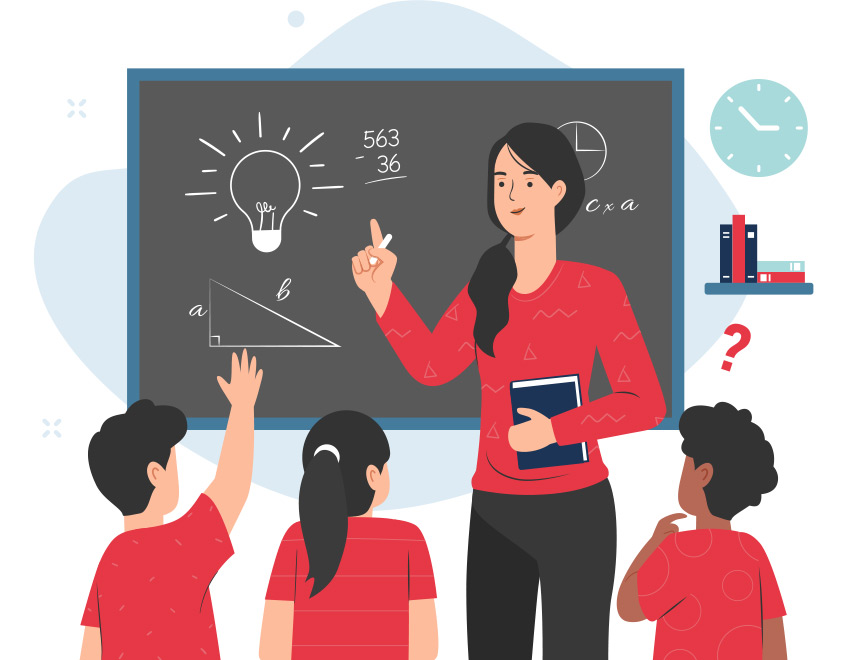Boost Your Child’s Confidence with Primary Science Tuition Singapore
Boost Your Child’s Confidence with Primary Science Tuition Singapore
Blog Article
Discover the Vital Benefits of Comprehending Primary Science for Young Students
The relevance of key scientific research education and learning for young learners extends far beyond mere expertise procurement; it serves as a fundamental column in developing important skills such as essential reasoning, analytical, and creativity. Engaging with clinical ideas through interactive and inquiry-based tasks not just grows interest yet likewise lays the groundwork for resistant, confident students.
Enhancing Important Believing Abilities
Promoting crucial thinking abilities in young learners is essential for their cognitive growth and future academic success. Important reasoning allows youngsters to examine details, examine proof, and make informed choices, which are vital abilities in today's information-rich society. By taking part in scientific query, young learners can improve these abilities as they explore principles through monitoring, trial and error, and thinking.
In main scientific research education, instructors can help with essential thinking by motivating trainees to ask inquiries, create theories, and conduct experiments. This hands-on strategy permits kids to exercise problem-solving and develop rational thinking abilities. When students examine the residential properties of products or the concepts of movement, they discover to examine their searchings for critically and draw conclusions based on evidence.
Additionally, discussions and joint tasks can advertise essential reasoning by supplying possibilities for students to express their ideas, difficulty assumptions, and consider diverse viewpoints. By producing a helpful setting that values questions and reflection, educators can nurture essential believing skills that empower young students to end up being independent thinkers and lifelong learners. Inevitably, improving these skills lays a robust foundation for their future scholastic endeavors and individual development.
Fostering Interest and Exploration

Primary scientific research education and learning offers a structured atmosphere where young students can explore different sensations through hands-on experiments and monitorings. By enabling them to connect with materials and take part in inquiry-based learning, teachers produce opportunities for kids to create hypotheses, check their concepts, and reason. Such experiences nurture a sense of marvel and exhilaration concerning scientific research.

Structure Self-confidence in Issue Resolving
Structure self-confidence in analytic is a crucial part of key scientific research education and learning that encourages young students to approach challenges with resilience and creative thinking - primary science tuition Singapore. They create necessary skills in critical reasoning and analysis when youngsters are motivated to engage with clinical ideas via hands-on activities and inquiry-based discovering. This process not just enhances their understanding of clinical principles yet likewise fosters a feeling of possession over their discovering
To build self-confidence, educators should develop a helpful setting where mistakes are directory deemed chances for development as opposed to failures. This urges pupils to take risks and explore numerous remedies to issues. By giving scaffolding and assistance, educators can help trainees browse complicated jobs, gradually enhancing their independence in analytical scenarios.
In addition, joint understanding experiences, such as team tasks or experiments, can better boost students' confidence as they learn to articulate their ideas and pay attention to others' point of views. These interactions nurture social skills and reinforce the idea that analytic is usually a cumulative venture. Eventually, cultivating confidence in problem-solving prepares young students for future scholastic challenges and equips them with the devices needed for long-lasting understanding.
Motivating Imagination and Innovation
In the world of main science education and learning, urging imagination and development is important for growing a dynamic learning atmosphere. By promoting a culture where young students can check out ideas and experiment freely, teachers assist pupils develop crucial believing skills and an enthusiasm for exploration. Creativity in scientific research encourages youngsters to ask questions, design hypotheses, and involve in hands-on tasks that stimulate their creative imagination.
Integrating flexible tasks and inquiry-based knowing right into the educational program allows trainees to share their distinct viewpoints and services. For example, when charged with solving an issue associated to their atmosphere, pupils can brainstorm several approaches, leading to inventive results that display their creativity. This not only strengthens their understanding of scientific ideas yet additionally infuses a sense of ownership over their discovering procedure.
In addition, imaginative scientific research education go to these guys and learning supports collaboration among peers, as students commonly share concepts and develop on one an additional's insights - primary science tuition Singapore. This collective spirit advertises not just technology yet additionally crucial social abilities. Hence, by focusing on creative thinking and innovation in primary scientific research education and learning, we equip young learners to believe critically, embrace challenges, and envision possibilities, laying a solid foundation for lifelong understanding and expedition
Planning For Future Understanding Difficulties
Young learners' ability to browse future knowing challenges depends upon a solid structure in primary scientific research education and learning. This fundamental understanding outfits read the full info here students with essential believing skills and a systematic strategy to analytical, essential for tackling intricate problems in an ever-evolving globe. Main science promotes inquiry-based learning, urging pupils to ask questions, discover hypotheses, and involve in hands-on experiments.
As they develop these abilities, students end up being adept at examining data, acknowledging patterns, and attracting informed conclusions. Such competencies are important not just in scientific fields yet also in math, modern technology, and engineering (STEM), where interdisciplinary knowledge is significantly essential.
Additionally, key science education cultivates a feeling of inquisitiveness and durability in young students, allowing them to watch challenges as opportunities for growth. As they come across and get rid of obstacles in their scientific explorations, they develop self-confidence in their capability to introduce and adapt.
Ultimately, a solid foundation in primary science not only prepares young learners for academic pursuits but also equips them with the tools necessary for lifelong learning and versatility in a quickly altering worldwide landscape. By purchasing primary scientific research education and learning, we are spending in the future possibility of our learners.
Conclusion
Recognizing main scientific research is crucial for young students, as it fosters important thinking, inquisitiveness, and imagination. Inevitably, the benefits of main scientific research education prepare kids for future scholastic searches and impart long-lasting learning routines essential for flourishing in an ever-evolving globe.
The importance of key science education and learning for young students extends far beyond simple expertise acquisition; it serves as a fundamental column in creating important skills such as important reasoning, problem-solving, and creative thinking. By creating a helpful setting that values questions and representation, educators can nurture vital assuming skills that empower young learners to become lifelong learners and independent thinkers. Therefore, by focusing on creativity and development in main science education, we equip young learners to believe seriously, welcome challenges, and envision opportunities, laying a solid structure for long-lasting discovering and expedition.
Young learners' capability to browse future discovering difficulties pivots on a strong foundation in primary scientific research education and learning.Understanding primary scientific research is essential for young learners, as it cultivates critical reasoning, interest, and imagination.
Report this page